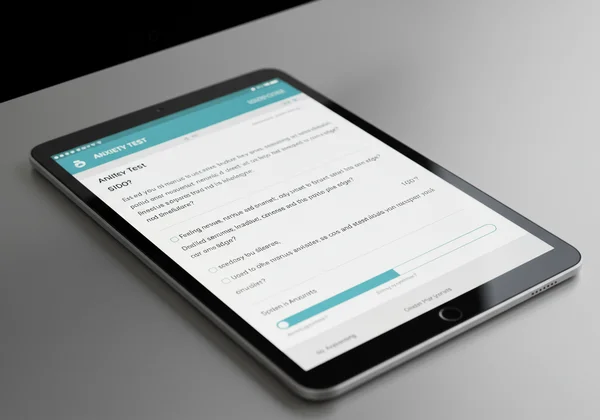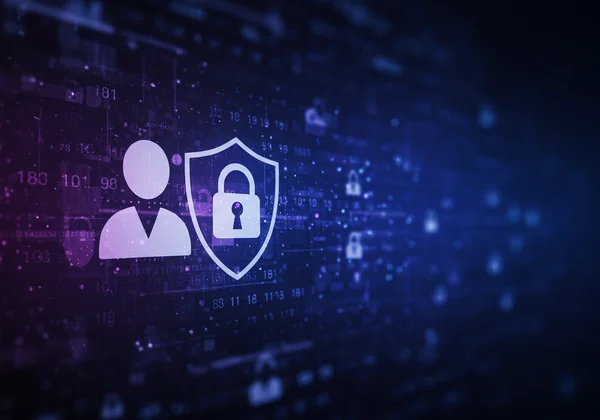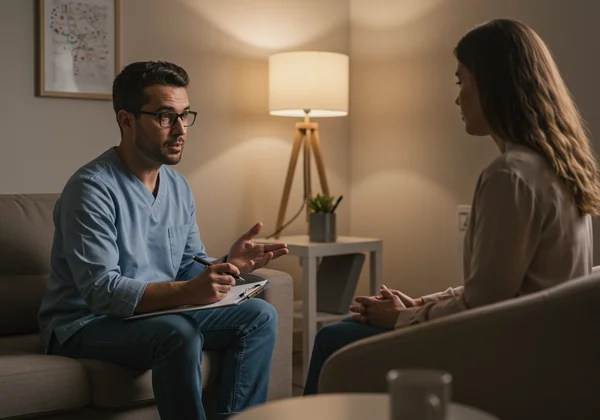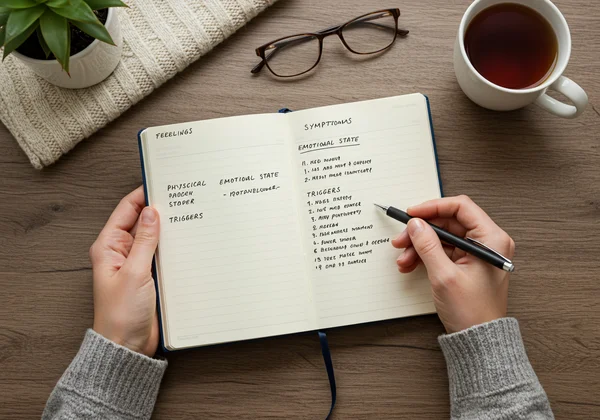Comment se faire dépister pour l'anxiété : méthodes d'évaluation expliquées
September 7, 2025 | By Isla Caldwell
Ressentir une inquiétude ou un malaise persistant peut être déstabilisant, surtout lorsque l'on ne sait pas ce qui en est la cause. Beaucoup de gens se demandent : « Ai-je de l'anxiété ? » Distinguer le stress quotidien d'un trouble anxieux potentiel peut être difficile, mais c'est une première étape cruciale pour comprendre sa santé mentale. Ce guide complet clarifiera les différentes méthodes d'évaluation de l'anxiété, des outils en ligne accessibles aux évaluations professionnelles approfondies. Vous apprendrez à quoi vous attendre, comment les différentes méthodes fonctionnent, et pourquoi passer un test d'anxiété est une démarche puissante pour gagner en clarté et en contrôle.
Explorer les tests d'anxiété en ligne et les outils d'auto-évaluation
Dans le monde numérique actuel, le chemin vers la compréhension de votre santé mentale commence souvent en ligne. Les outils d'auto-évaluation offrent un point d'entrée privé et sans contrainte pour toute personne curieuse de connaître son niveau d'anxiété. Ils sont conçus pour être rapides, accessibles et informatifs, offrant un aperçu précieux de votre état émotionnel actuel. Effectuer une évaluation initiale peut être une étape importante, et un quiz d'anxiété gratuit peut vous fournir les premiers éclaircissements dont vous avez besoin.
Qu'est-ce qu'un test d'anxiété en ligne et comment fonctionne-t-il ?
Un test d'anxiété en ligne est un outil de dépistage, et non un outil de diagnostic. Il consiste généralement en une série de questions sur la façon dont vous vous êtes senti au cours d'une période spécifique, généralement les deux dernières semaines. Les tests réputés, comme ceux disponibles ici, sont basés sur des questionnaires scientifiquement validés utilisés en milieu clinique, tels que l'échelle de 7 items du trouble d'anxiété généralisée (GAD-7).
Le processus est simple : vous répondez à des questions sur des symptômes tels que le fait de se sentir nerveux, d'être incapable d'arrêter de s'inquiéter, ou d'avoir du mal à se détendre. Chaque réponse est associée à une valeur en points, et votre score total correspond à un certain niveau de gravité de l'anxiété – minimal, léger, modéré ou sévère. Ce score aide à quantifier des sentiments qui peuvent souvent sembler abstraits et accablants, leur donnant une mesure concrète. Il fournit un point de départ concret pour l'auto-réflexion ou une conversation avec un professionnel.

Les avantages d'un test d'anxiété gratuit et confidentiel
Pour beaucoup de gens, l'idée de discuter de leur santé mentale est intimidante en raison de la stigmatisation, du coût ou des préoccupations de confidentialité. C'est là qu'un test d'anxiété gratuit et confidentiel prend toute son importance. Les principaux avantages comprennent :
-
Anonymat Complet : Les plateformes réputées ne vous demandent pas de vous inscrire ni de fournir d'informations personnelles. Cela garantit que vos résultats sont entièrement privés, vous permettant d'explorer vos sentiments sans crainte de jugement ou de suivi de données.
-
Accessibilité : Ces tests sont disponibles 24h/24 et 7j/7 depuis n'importe quel appareil. Cela élimine les obstacles tels que la prise de rendez-vous ou les déplacements, facilitant l'obtention d'informations immédiates chaque fois que vous en avez besoin.
-
Gratuité : Le fait d'être gratuit élimine tout obstacle financier, rendant le dépistage de la santé mentale accessible à tous, quelle que soit leur situation financière.
-
Autonomisation : Obtenir un score objectif peut valider vos sentiments et vous donner les connaissances nécessaires pour passer à l'étape suivante. Un outil comme un test d'anxiété en ligne vous offre une vision claire et basée sur des données de vos symptômes.

Comprendre la précision et les limites de l'auto-dépistage
Il est essentiel d'avoir des attentes réalistes concernant les outils d'auto-dépistage en ligne. Quelle est la précision d'un test d'anxiété en ligne ? Lorsqu'ils sont basés sur des échelles cliniques comme le GAD-7, ces tests sont très fiables à des fins de dépistage. Ils sont excellents pour identifier les symptômes qui correspondent à un trouble anxieux.
Cependant, ils ne peuvent pas fournir de diagnostic formel. Un diagnostic ne peut être posé que par un professionnel de la santé qualifié qui peut prendre en compte votre historique médical complet, votre contexte personnel et exclure d'autres causes potentielles de vos symptômes. Considérez un test en ligne comme un thermomètre : il peut vous dire si vous avez de la fièvre, mais il ne peut pas vous dire ce qui la cause. Les résultats sont un point de départ pour une conversation plus approfondie, pas le dernier mot.
Évaluation professionnelle de l'anxiété : quand consulter un expert
Bien que les outils en ligne soient une excellente première étape, il y a des moments où une évaluation professionnelle de l'anxiété est nécessaire. Une évaluation clinique offre une compréhension complète et nuancée de votre santé mentale, et c'est le seul moyen d'obtenir un diagnostic officiel et un plan de traitement personnalisé. Savoir quand passer de l'auto-évaluation à l'aide professionnelle est essentiel.
Reconnaître quand une évaluation professionnelle est nécessaire
Vous devriez envisager de demander une évaluation professionnelle si vous rencontrez l'une des situations suivantes :
-
Vos symptômes ont un impact significatif sur votre vie quotidienne, y compris votre travail, vos études ou vos relations.
-
Vous avez obtenu un score élevé à un test de niveau d'anxiété et les résultats vous préoccupent.
-
Votre anxiété vous cause une détresse importante ou vous subissez de fréquentes crises de panique.
-
Vous utilisez des mécanismes d'adaptation malsains, tels que la consommation de substances, pour gérer vos sentiments.
-
Vos symptômes persistent depuis plusieurs semaines ou mois sans amélioration.

Le rôle des entretiens cliniques dans le diagnostic
La pierre angulaire d'une évaluation professionnelle de l'anxiété est l'entretien clinique. Il s'agit d'une conversation guidée entre vous et un professionnel de la santé mentale, tel qu'un psychologue, un psychiatre ou un thérapeute agréé. Ils poseront des questions détaillées sur vos symptômes, leur durée et leur gravité, vos antécédents familiaux, votre mode de vie et tout facteur de stress spécifique auquel vous êtes confronté.
Cette conversation permet au clinicien de comprendre le contexte complet de vos expériences. C'est un processus collaboratif visant à obtenir une image complète de votre bien-être. L'objectif est d'identifier les schémas et les comportements qui correspondent aux critères diagnostiques spécifiques des troubles anxieux tels que décrits dans des manuels comme le DSM-5 (Manuel diagnostique et statistique des troubles mentaux).
Questionnaires psychologiques standardisés utilisés par les professionnels
En plus de l'entretien, les cliniciens utilisent souvent des questionnaires standardisés pour recueillir des données plus objectives. Il peut s'agir de versions plus détaillées des outils de dépistage que l'on trouve en ligne. Par exemple, bien que le GAD-7 soit un excellent outil de dépistage, un professionnel pourrait utiliser d'autres évaluations pour explorer différentes facettes de l'anxiété, telles que l'anxiété sociale, le trouble panique ou le trouble obsessionnel-compulsif (TOC). Ces outils aident à confirmer l'impression diagnostique et à mesurer avec précision la gravité des symptômes.
Préparer votre parcours d'évaluation de l'anxiété
Que vous commenciez par un test en ligne ou que vous preniez rendez-vous avec un professionnel, un peu de préparation peut rendre le processus plus fluide et plus efficace. Jouer un rôle actif dans votre parcours d'évaluation peut vous aider à en tirer le meilleur parti et à vous sentir plus en contrôle. Cette approche proactive peut commencer par un simple test des symptômes d'anxiété pour organiser vos pensées.
Documenter efficacement vos symptômes et vos déclencheurs
Avant votre évaluation, prenez le temps de noter ce que vous avez ressenti. Cela peut être incroyablement utile, car il est facile d'oublier des détails importants lorsque vous êtes nerveux. Considérez de noter :
-
Symptômes Physiques : Maux de tête, fatigue, rythme cardiaque accéléré, problèmes d'estomac, essoufflement.
-
Symptômes Émotionnels : Inquiétude constante, irritabilité, sentiments d'appréhension, difficulté à se détendre.
-
Symptômes Comportementaux : Éviter certaines situations, être agité, avoir des troubles du sommeil.
-
Déclencheurs : Quelles situations, personnes ou pensées semblent aggraver votre anxiété ?
-
Fréquence et Durée : À quelle fréquence vous sentez-vous ainsi, et combien de temps cela dure-t-il ?

À quoi s'attendre lors d'une évaluation professionnelle
Savoir à quoi s'attendre peut apaiser toute appréhension concernant une évaluation professionnelle. Le premier rendez-vous est généralement axé sur la collecte d'informations. Votre clinicien créera un espace sûr et confidentiel pour que vous puissiez partager ouvertement vos expériences. Soyez prêt à parler de votre histoire, mais rappelez-vous que vous n'avez pas à partager quoi que ce soit avec lequel vous n'êtes pas à l'aise. La session est pour votre bénéfice, et le professionnel est là pour aider, pas pour juger. Il expliquera son processus, répondra à vos questions et discutera des prochaines étapes potentielles, qui pourraient inclure une thérapie, des médicaments ou des recommandations de mode de vie.
Vous autonomiser : vos prochaines étapes
Prendre l'initiative de comprendre votre anxiété est un acte puissant de bienveillance envers soi-même. Que vous commenciez par un dépistage en ligne confidentiel ou que vous recherchiez une évaluation clinique approfondie, chaque étape est cruciale pour votre bien-être mental. Notre évaluation en ligne gratuite et accessible est conçue pour vous offrir des informations immédiates et privées, vous permettant de mieux comprendre vos sentiments et de décider de vos prochaines étapes. N'oubliez pas que vos sentiments sont valides, et rechercher la clarté est un véritable signe de force. Prêt à faire ce premier pas crucial vers la compréhension ? Passez notre test gratuit dès maintenant et obtenez des informations instantanées et confidentielles sur votre santé émotionnelle.
Questions Fréquentes sur les Évaluations de l'Anxiété
Ai-je de l'anxiété, ou est-ce simplement du stress ?
Le stress est généralement une réponse à un déclencheur externe (comme une échéance de travail) et disparaît une fois que le déclencheur est parti. L'anxiété, en revanche, est un état d'inquiétude plus persistant qui peut perdurer même sans facteur de stress évident. Un test d'évaluation de l'anxiété en ligne peut vous aider à voir si vos symptômes correspondent davantage à un trouble anxieux.
Que dois-je faire si mon score au test d'anxiété en ligne est élevé ?
Un score élevé indique que vos symptômes sont significatifs et pourraient nécessiter une attention professionnelle. Utilisez ce résultat comme un catalyseur pour prendre rendez-vous avec un médecin ou un professionnel de la santé mentale. Cela peut servir de point de départ utile et objectif pour cette conversation importante.
Combien de temps dure une évaluation typique de l'anxiété ?
Un test d'anxiété en ligne peut être complété en moins de trois minutes. Une évaluation clinique professionnelle est plus approfondie ; l'entretien initial dure généralement entre 60 et 90 minutes, avec des séances de suivi potentielles pour une évaluation complète.
Les tests d'anxiété en ligne sont-ils vraiment anonymes et privés ?
Oui, les tests en ligne réputés, tels que ceux sur cette plateforme, sont conçus pour une confidentialité totale. Nous n'exigeons ni inscription, ni noms, ni adresses e-mail, et nous ne stockons aucune donnée personnelle. Vos résultats sont pour vos yeux seulement, garantissant une expérience sûre et confidentielle.
Où puis-je trouver de l'aide professionnelle pour l'anxiété ?
Vous pouvez commencer par parler à votre médecin traitant, qui pourra vous orienter vers un spécialiste de la santé mentale. Vous pouvez également rechercher des psychologues, des psychiatres ou des thérapeutes agréés dans votre région via des annuaires en ligne. Des organisations comme la National Alliance on Mental Illness (NAMI) et l'Anxiety & Depression Association of America (ADAA) proposent des ressources et des annuaires de professionnels sur leurs sites web.